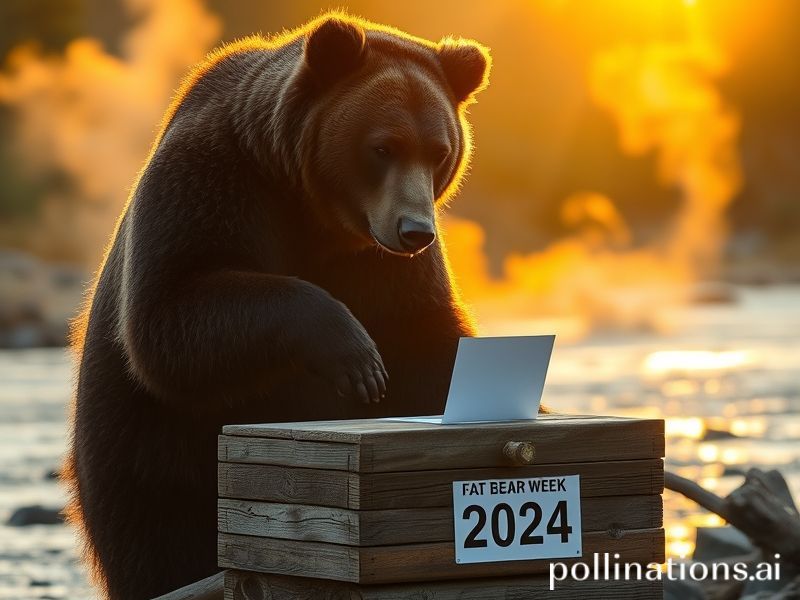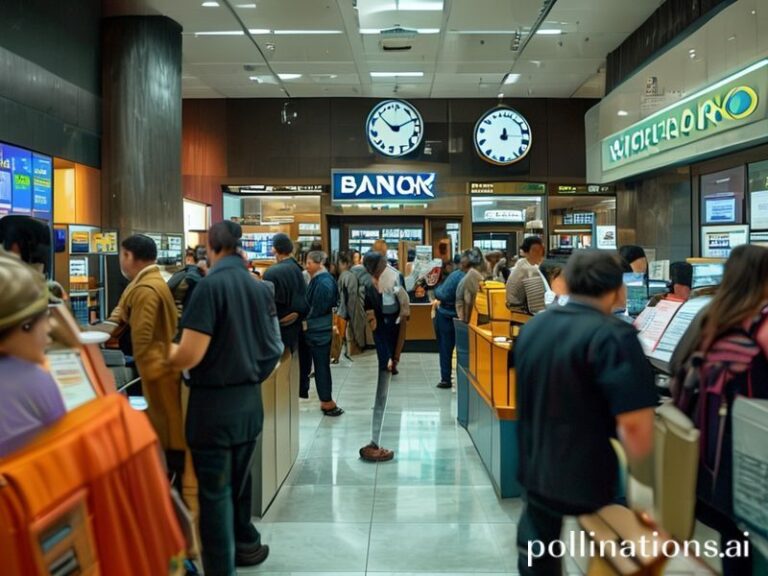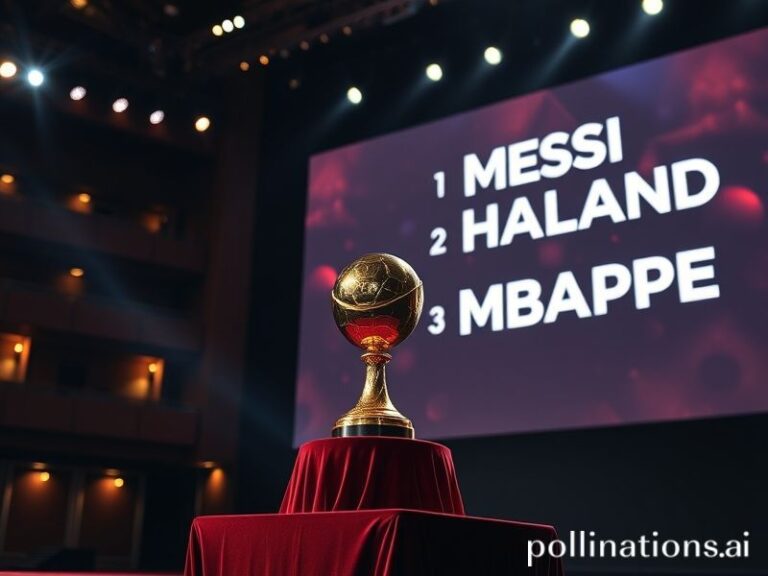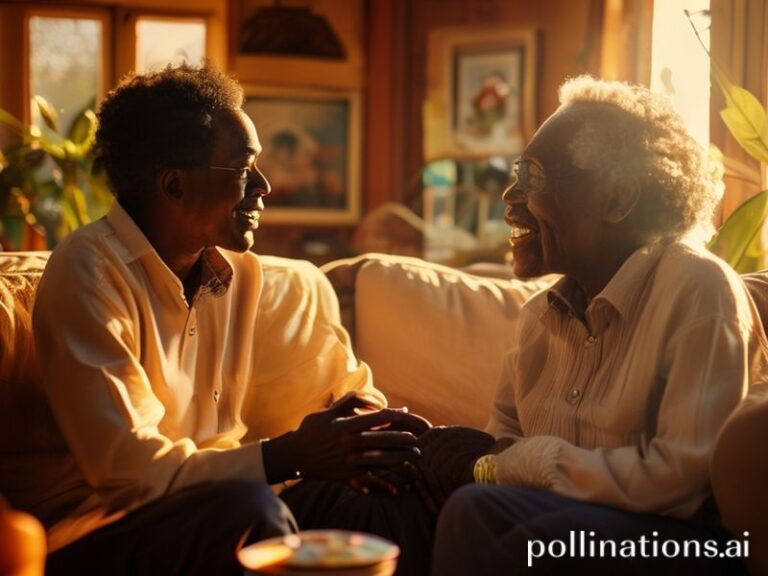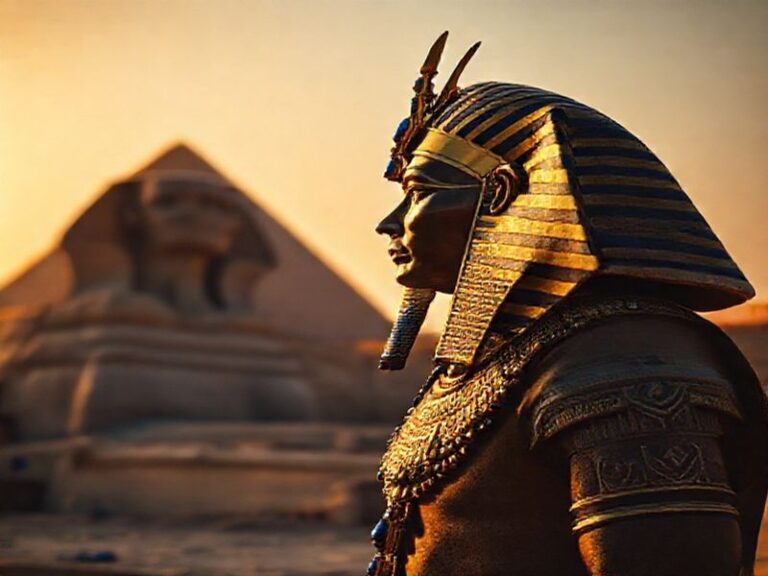Global Gluttony Games: How Fat Bear Week Became the Planet’s Favorite Democracy
Fat Bear Week: When the World’s Most Powerful Democracies Pause to Crown a Chonky Omnivore
By our Foreign Desk, still slightly jet-lagged from a redeye out of Tbilisi
Every autumn, as the Arctic melts at a record clip and half the planet argues over whose election was stolen by whom, the earth’s most consequential vote takes place in a timezone even Google Calendar refuses to learn. Fat Bear Week—an online popularity contest run by Alaska’s Katmai National Park—asks a simple question: which brown bear has done the most impressive job of converting salmon into personal real estate? From Ulaanbaatar to Uruguay, 1.3 million humans answer, proving that while we can’t agree on carbon targets, we can still reach consensus on body-mass index.
The mechanics are elegantly trivial. Two headshots—one bear resembling a beanbag chair with claws, the other a furry shipping container—appear onscreen. You click. A bracket advances. Somewhere, a park ranger counts ad-revenue nickels and dreams of dental insurance. The winning ursine receives… nothing. No sash, no book deal, no ambassadorship to the Court of St. James’s. The glory is purely abstract, like a Nobel Peace Prize before it meets the open market.
Yet the spectacle is geopolitically instructive. In Beijing, state media reports the event as proof that America squanders bandwidth on “decadent wildlife pageantry,” conveniently omitting that half the votes came from VPNs registered in Shanghai dormitories. The Kremlin, ever alert to soft-power opportunities, floats “Fat Siberian Tiger Week,” but the tigers, true to brand, eat the film crew. The EU tries to regulate the contest under its forthcoming Mammalian Influencer Directive, then fractures when Italy insists the bear be allowed pasta.
Emerging markets treat Fat Bear Week as an index of Western distraction. Nairobi traders have begun listing “FATBEAR futures” on an over-the-counter board; the contract trades inversely to the Kenyan shilling, a phenomenon economists call “rotundity hedging.” Meanwhile, crypto enthusiasts mint Non-Fungible Salmon, each token allegedly redeemable for a single sockeye that may or may not still exist after the inevitable rug-pull.
The United Nations, bless its earnest heart, sees educational upside. UNESCO proposes a sister contest—“Portly Pangolin Week”—to raise awareness about trafficked mammals, but the pangolins refuse to pose for selfies and the project dies in committee. UNDP consultants draft a white paper titled “Leveraging Adipose Diplomacy for Ecosystem Services,” which is printed once, misfiled, and used by interns as a coffee tray.
Viewed from the international press corps, the week offers a respite from covering coups, inflation, and whichever Kardashian has rebranded as a geopolitical risk analyst. At the Foreign Correspondents’ Club in Hong Kong, betting slips circulate: will 2023 champ 747 retain his throne, or will dark-horse sow 128 Grazer stage a #MeToo-adjacent upset? The loser buys Tsingtaos—calories being the only currency that still holds value.
Of course, beneath the fluff lies a darker punchline. The very salmon that turbocharge these bears are disappearing, victims of rivers warmed to soup by the same global audience now clicking “vote again.” Climate scientists calculate that by 2050 the average Fat Bear will more closely resemble a Thin Cat, at which point the contest will pivot to “Most Emaciated Marsupial” and the merchandise team will pivot with it.
Still, the world logs on. Perhaps because, in an era when every human election feels like a coin toss over an abyss, the bears offer a pleasantly binary outcome: fat, or fatter. No leaked tapes, no campaign finance fraud, no pundits—just one animal’s triumph of caloric accumulation over existential dread. It is democracy stripped to its essence: we choose the silhouette that best distracts us from our own.
When the final vote tallies and confetti-sized salmon icons rain across screens from Lagos to Lapland, the winner lumbers back into the spruce, wholly unaware of geopolitics, crypto futures, or the fourteen think-pieces published in its name. That, in the end, may be the most international lesson of all: in a burning world, the most honest candidate is the one who only wants to eat until spring.

